Advertisement
Lifting Up A Neighborhood — And Artists — With A Public Art Project
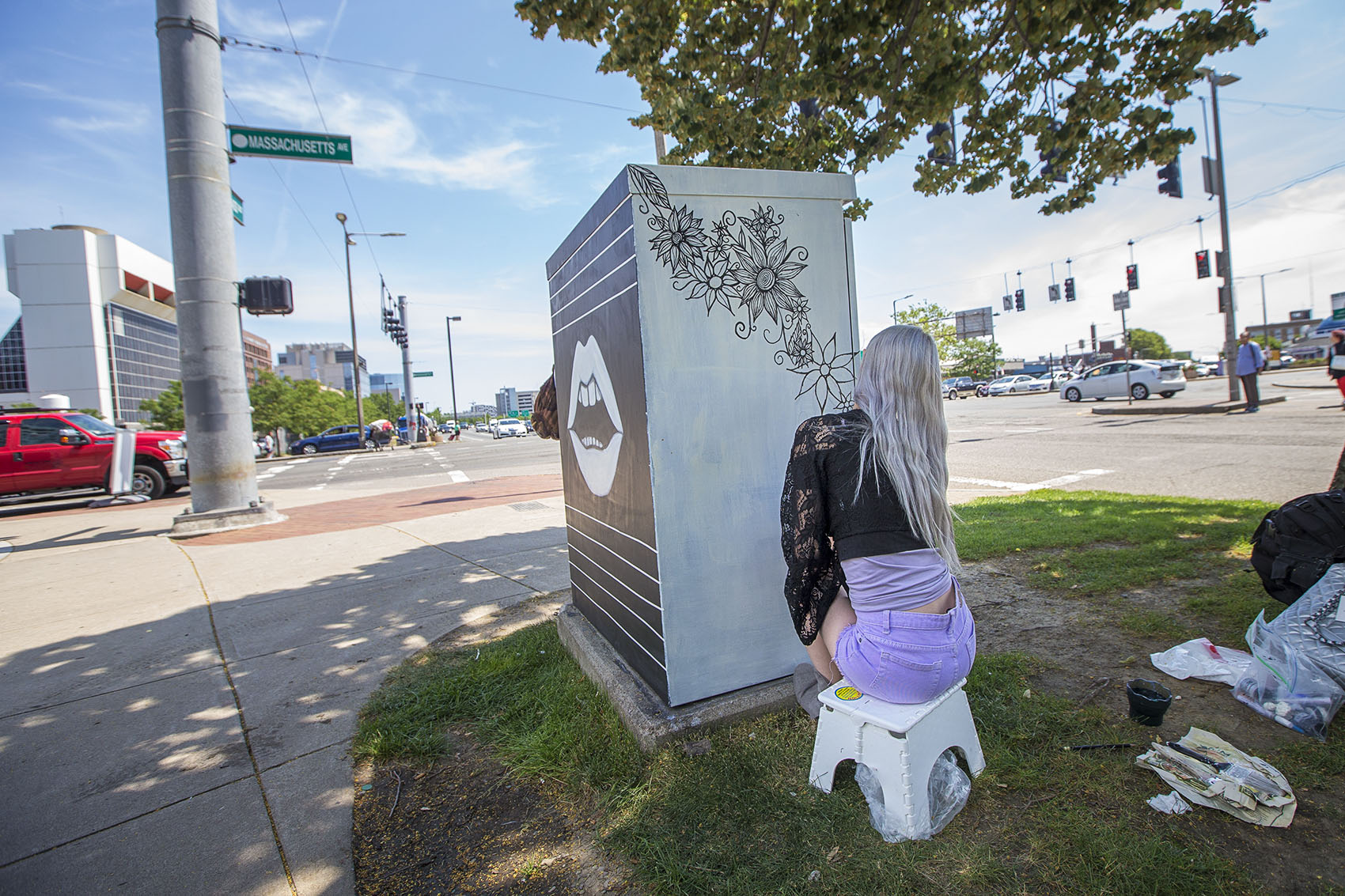
The intersection of Melnea Cass Boulevard and Mass. Ave. is always busy, not just with the constant rush of cars but with the bustle of Boston’s neglected inhabitants. Some are begging for money, rattling coins in their plastic soda cups. Some are selling or buying drugs, while others head over to clinics to receive treatment.
And on the Mass. Ave. median, just outside the Roundhouse Inn, Kitty Zen is painting an electrical box.
She was commissioned by the City of Boston to paint the box as part of its beautification and outreach efforts. This stretch of Mass. Ave. is known as Methadone Mile because of the area's high concentration of drug users and addiction treatment facilities.
In an effort to make the intersection more than just a drab concrete breeding ground for illicit drug activity, the city brought its PaintBox program to the neighborhood. Working with ArtLifting — an organization that aims to empower artists in recovery or living with homelessness or disability -- the Mayor’s Office of Arts and Culture and the Boston Arts Commission selected two artists, Zen and Jeff Powers, to paint electrical boxes here. Each artist receives about $300, which includes the cost of supplies.
Liz Powers founded ArtLifting in 2013 after seeing what she considered amazing artworks while working with arts groups at homeless shelters — works that, like their creators, didn't have a home. Creating a platform to sell their art, she thought, would help artists in unstable situations both to showcase their work and to earn money.
Every artist selling through ArtLifting receives 55 percent of the proceeds. The for-profit company now represents 115 artists and works in 19 states.
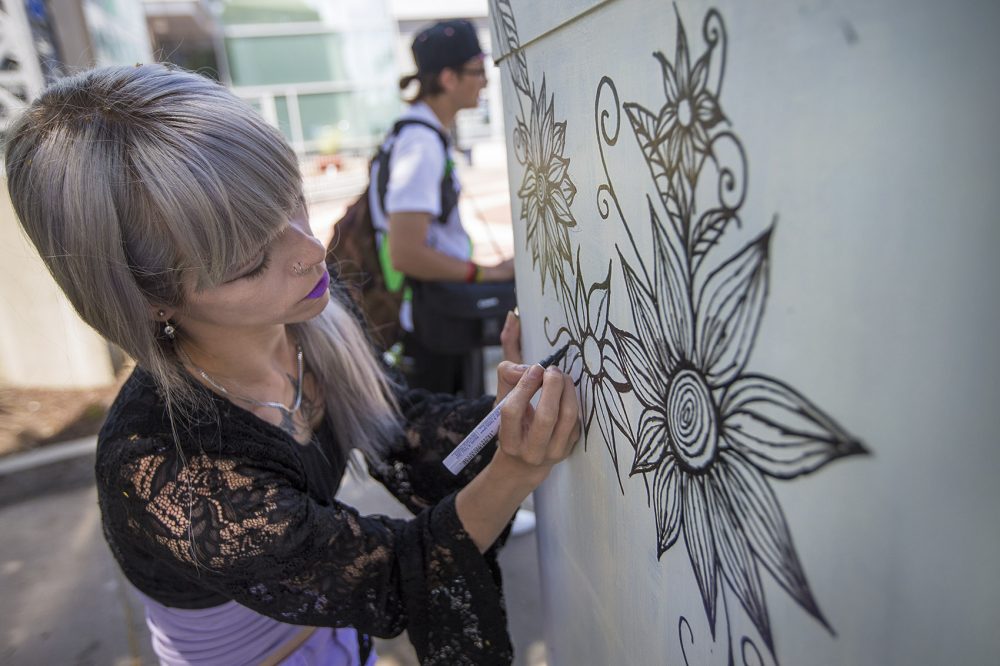
On her first electrical box, Zen painted a yellow flower springing from the sidewalk.
“It really captures a lot of resilience," she says, "finding a way to carry on and be strong when the odds are against you.”
Zen, no stranger to homelessness, says the flower is a testament to her own growth, which she attributes largely to the ArtLifting program.
When Zen joined ArtLifting three years ago, she says, she had been homeless for a number of years and couldn't keep a job. She was volunteering at an art gallery but couldn't get it to show her work. Zen, who was never professionally trained as an artist, was determined to get her work noticed.
“I decided if I can’t put my art in the gallery I’m going to put my art out in public anyways,” Zen says.
So she began setting up her art on blankets in Harvard Square and at the Park Street T stop, hoping that she might get $10 for pieces she thinks could have sold for 10 times that much in a local gallery.
An ArtLifting employee noticed Zen’s persistence and invited her to talk to Powers. Now, ArtLifting's website offers scores of Zen’s pieces for sale, some for more than $1,500. And those are just the originals. Prints, posters and even phone cases featuring her artwork are also for sale. ArtLifting has helped Zen sell 14 full-priced, original pieces since she joined, as well as about 35 prints and products a year.
As a money-making enterprise, ArtLifting provides artists with real opportunities to secure their own income by receiving a commission of over half the profit from their art sales. It is an important part of ArtLifting’s mission, its staff members say, for its artists to feel like — and be treated as — real working artists.
“I treat the artists as business partners, and they treat me the same way," says Caitlin Murphy, the curatorial associate at ArtLifting. "It establishes a really strong sense of respect.”
As someone who had never felt validated by other professional artists despite having painted her whole life, Zen felt that ArtLifting finally gave her the confidence to pursue painting as a real means of making a living.
Zen has a ways to go for that to happen; although she now considers ArtLifting her main source of income, she's still living in a Cambridge shelter.
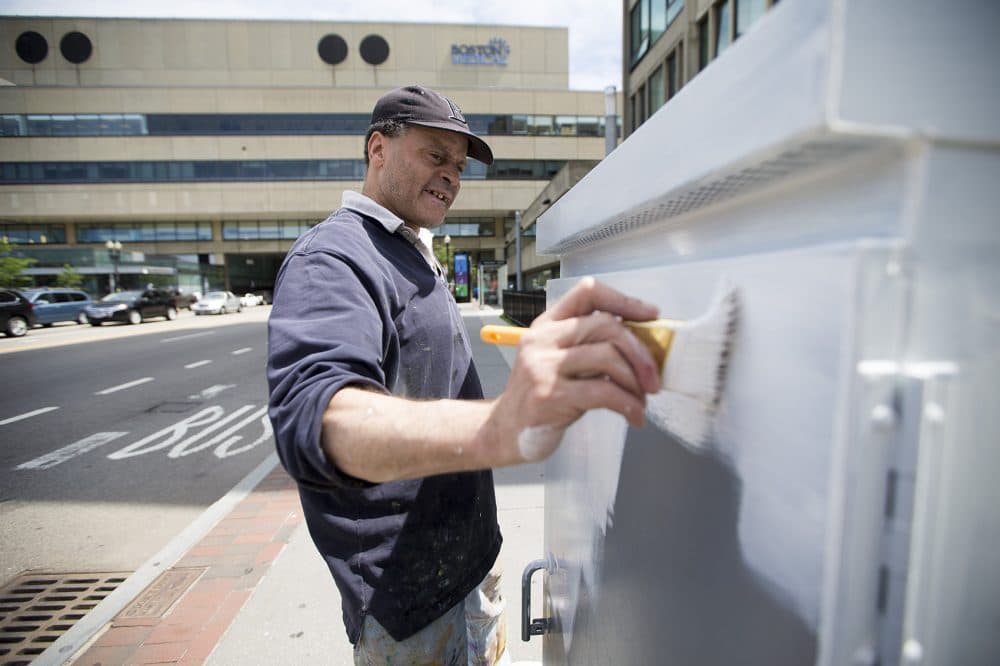
Like Zen, Jeff Powers says he never considered himself a real artist until he joined ArtLifting in 2014.
“They really provide you with a sense of dignity,” he says.
Powers, who never graduated from art school and is in recovery from substance abuse, is now painting his fourth electrical box. With designs ranging from crisp falling leaves to Japanese characters against colorful backdrops, Powers says he is painting the boxes not for the money, but for the chance to have his art inspire the passersby who need it most.
That's in keeping with the PaintBox program's aims: not just to empower artists but to encourage the people who live in and frequent the area.
Powers can speak to the importance of inspiration. Once someone who just doodled while he was high, Powers has transformed himself into a commissioned artist. He even painted an office mural for Flywire, a Boston startup that provides international payment services to businesses. A proud dad and husband, he works as a personal care assistant on the weekends.
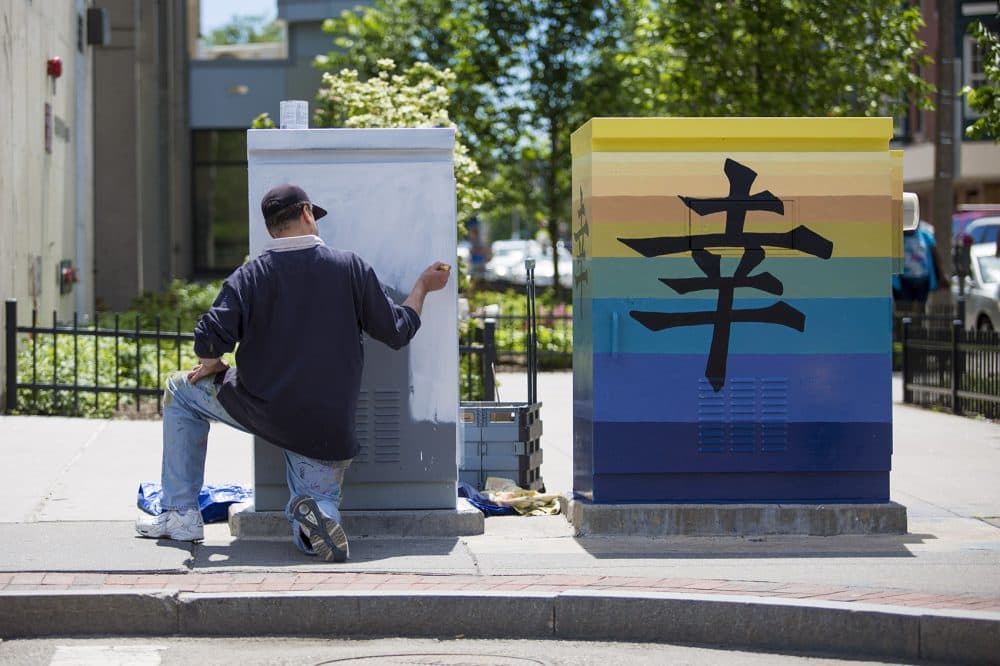
Many of the passersby on Methadone Mile are here not because they want to be, Zen notes, but because they need to be, in order to receive treatment or attend programs and classes. Zen calls it their hustle: doing what is necessary to succeed.
“For a while, my hustle was selling art on a blanket,” Zen remembers. But she doesn't mean "hustle" in a negative way — it's just what you do, and sometimes it can lead to success.
Brendan Little, policy director in the Mayor's Office of Recovery Services, says the PaintBox program is a reflection of what people in the Melnea Cass neighborhood continuously accomplish.
"It's a way to claim the area with markers of resilience," he says.
Zen has three more boxes to paint, but she's already searching for new and unexpected ways and places to present her work.
“I guess I’m just going to keep dreaming and keep thinking outside the box.”
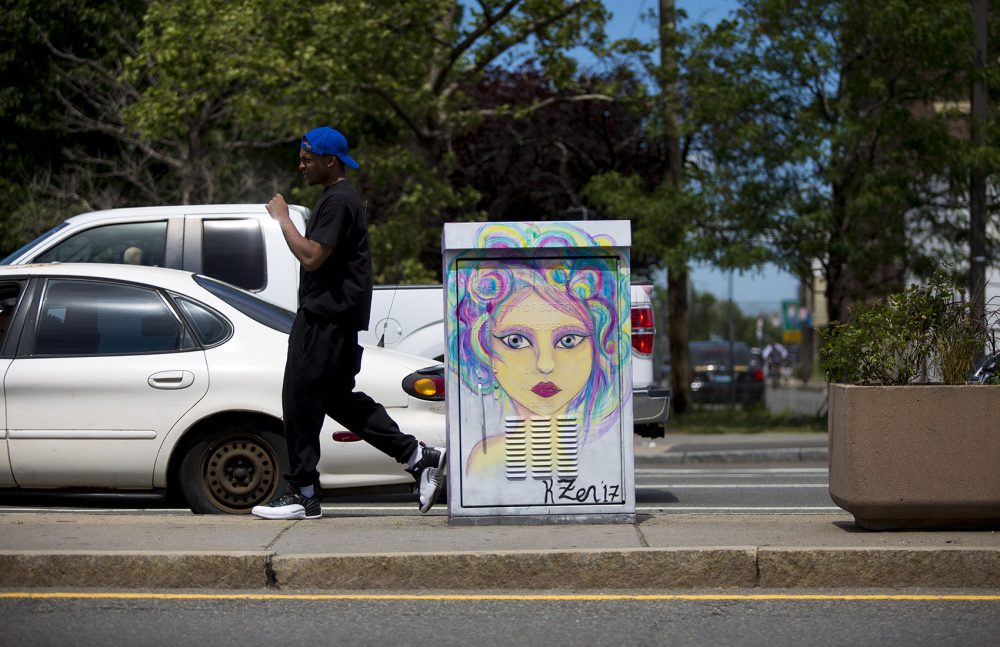
Updated to clarify that ArtLifting's artists include, in addition to people living with homelessness or disability, those in recovery from substance abuse, rather than people still abusing substances.
This article was originally published on July 14, 2017.
